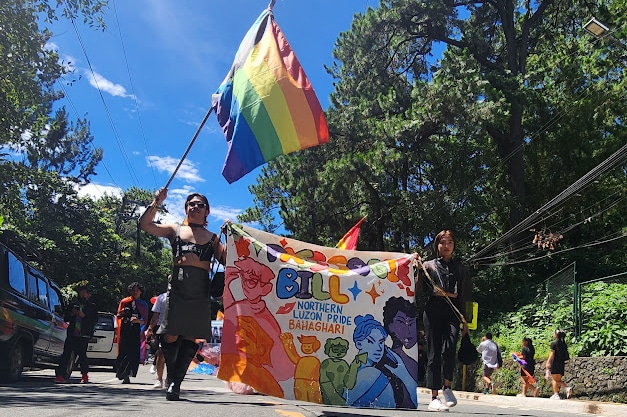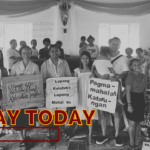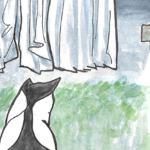By SHERWIN DE VERA
www.nordis.net
BAGUIO CITY — Despite significant milestones in Baguio City’s recognition and protection of the LGBTQ+ community, organizers and participants of this year’s Pride March agree that their struggle for equal rights is still a long way.
Chawie Vergara of Bahaghari Saint Louis University said members of the LGBTQ+ are broadly accepted in the country’s Summer Capital, citing the city’s two Pride events – the commemoration of the International Pride month in June and the Baguio Pride every November.
She also mentioned the Mardi Gras during the 2023 Panagbenga Festival, a collaboration between the local government and the city’s LGBTQ+ community.
Vergara attributed this “welcoming environment” to Baguio being an education center and tourist destination.
“While there exist a generational gap on the appreciation of LGBTQ+ culture, the number of students in the city affects their acceptance,” Vergara said on June 24.
According to her, students are more open to ideas and tend to influence public perception by initiating broader conversations on LGBTQ+ concerns. Meanwhile, being a tourist destination, the city has evolved to be inclusive and open to various cultures.
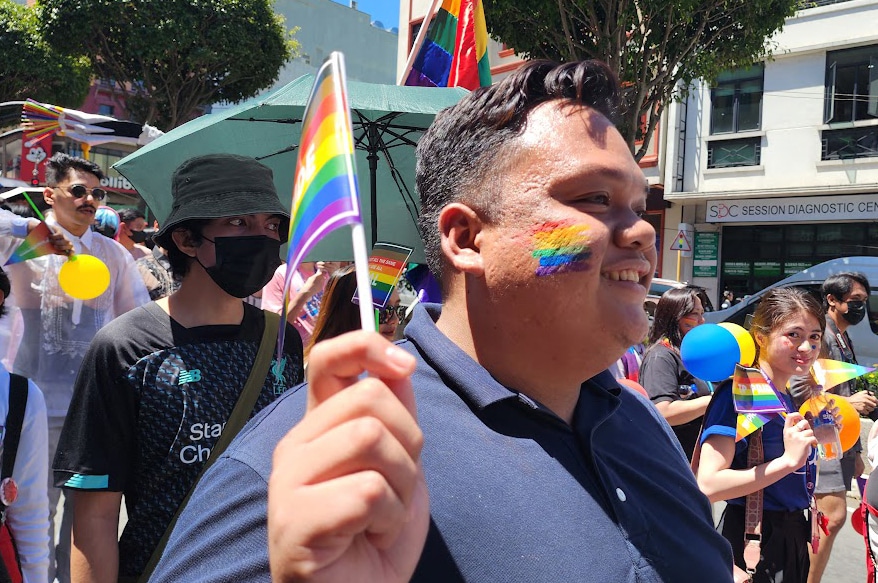
“Supportive businesses”
Herson Arcega, the co-chair of Northern Luzon Pride, believes that aside from the city’s support, the vibrant LGBTQ+ community also hinges on backing from local businesses.
“Yung community natin, we have a lot of sponsors, including small businesses are very supportive in our activities,” he said during a June 24 interview.
Business owner Ryan Javier shares the same view: “The business community has become more welcoming, and many are interested in booking [LGBTQ+] performers.”
Javier owns Planet G Music Box, one of only two bars in the city designed to cater to the community. The establishment opened eight years ago.
“It was established as a space for LGBTQ community events and performances, and became an open platform for Baguio performers,” he shared.
According to him, they established Planet G not only as a business but mainly to support talents and to develop and recognize the LGBTQ community.
“In the past, you would see a specific crowd at the bar, and you knew it was LGBTQ, but now you see straight people attending as well. The appreciation and recognition for the LGBTQ community in Baguio have grown,” Javier added.
Days before the march, several business establishments in the city also hung rainbow flags and colors, including Ili Likha, the art and food hub owned by National Artist for Film Kidlat Tahimik.
https://www.youtube.com/embed/F7EkmTbfqrE?feature=oembed&wmode=opaquePAYT LATTA. Herson Arcega, co-chairperson of Northern Luzon Pride, explains this year’s theme for the Pride Month celebration and the need to continue the struggle for gender equality.
Discrimination still prevalent
Although the local government has shown full support for LGBTQ+ community initiatives, they all agree that it is still a long way toward equality and having a safe space for LGBTQ+ members in the city.
Arcega said even with the “welcoming” atmosphere for LGBTQ+ members, discrimination is still common in different institutions in the city.
“Discrimination is still prevalent in workplaces and schools … [and] because it is prevalent, community members truly feel the effects,” he said.
He explained that prohibitions on cross-dressing and other simple things remain in educational institutions. In the workplace, it is not much about the pay and benefits but rather about how LGBTQ+ are treated, especially in jobs perceived as masculine.
For Vergara, fear lingers wherever she goes: “Regarding creating safe spaces for LGBTQ, there is still no safe space. Everywhere I go, I fear that I will be discriminated against or become a victim of hate crime.”‘
She said this is why many of their members are still reluctant “to even wear the clothes we are comfortable with.”
Estelle Lopez, Amnesty International Philippines regional coordinator for Cordillera, explained that “microaggressions” and conservative comments about LGBTQ+ persons remain common.
“Baguio may appear safe but there is still numerous time that [we] experience microaggressions,” she said.
“There are existing cultural barriers, particularly the macho culture, which is more pronounced in the Cordillera region. It is a culture where one cannot be perceived as soft,” Lopez added.
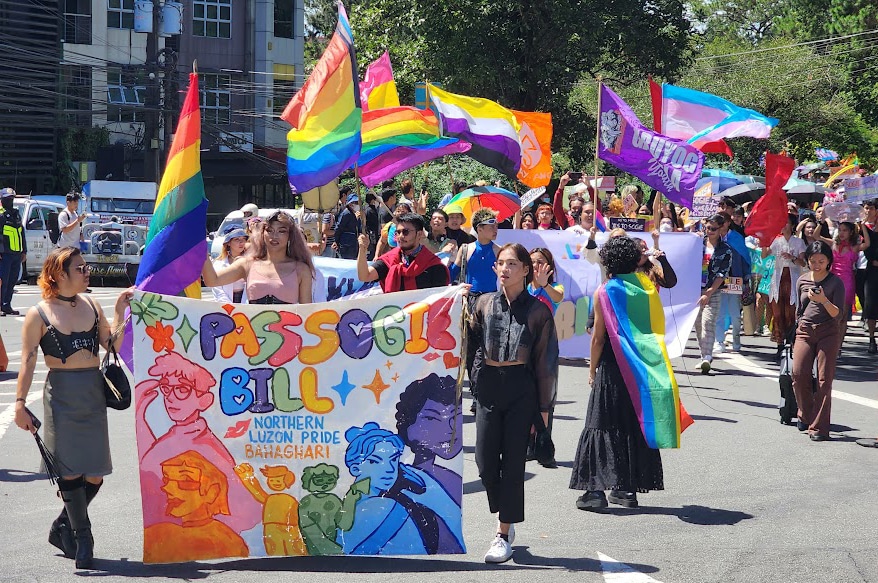
Institutionalize, legislate protection
Vergara said implementing the city’s antidiscrimination ordinance would be a step forward towards achieving a “safe space” for their community.
“We have the antidiscrimination ordinance but there are still no implementing rules and regulations. The city should work on this to strengthen the legislation,” she said.
In 2017, the city passed the Antidiscrimination Ordinance, which protects individuals from discrimination based on age, religion, ethnicity, health status, disability, sexual orientation, and gender identity.
But they said the passage of the Sexual Orientation and Gender Identity and Expression (SOGIE) Bill remains the primary step to protect them.
“Our biggest challenge is still the passing of the SOGIE bill. For us, it is the most crucial protection we need to ensure sufficient recognition, respect, and equal footing for the LGBTQ+ community compared to heterosexual people,” said Arcega.
The Senate Committee on Women, Children, Family Relations, and Gender Equality approved the proposed legislation in December last year. Last May, the House Committee on Women and Gender Equality also passed the counterpart bill.
Meanwhile, Lopez said that besides ensuring the IRR for the antidiscrimination ordinance and passage of the SOGIE bill, local governments should stress on education.
“Education should be one of the priorities. People here in Baguio are willing to listen. We need to enhance their understanding of microaggressions and why they affect LGBTQ people,” she explained.
She also appealed to the church for understanding, being one of the “conservative pillars,” saying they are not looking for special treatment but a community “hoping for acceptance from everyone.” # nordis.net

